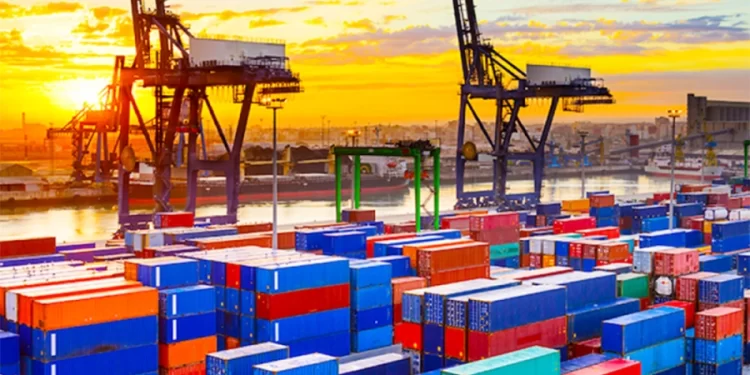Nigeria, Africa’s giant is set to commence full participation in the Africa Continental Free Trade Area (AFCFTA) in the fourth quarter of 2022.
The Secretary of the committee on the AFCFTA, Mr. Francis Anatogu, made this disclosure in a telephone interview with the Punch on Monday, pointing to the fact that some trading documents were needed before Nigeria could assume full participation.
The Secretary asserted that the needed trading documents were undergoing the gazetting process. According to his comments in the interview with Punch, he said:
“The update is that for us to begin, there are some trading documents that we now need to dissect.”
“Those documents came last week, so they are still with the Customs. The gazetting processes will commence and once it is gazetted, it will be published.”
“Just to be on the safe side, we will be participating this year – that is for sure. The trading documents have been issued and the gazetting process is ongoing in Nigeria and once that is done, trading can start.”
The Executive Director, Center for the Study of the Economies of Africa (CSEA), Chukwuka Onyekwena, and Yewande Olapade, a quantitative and non-resident fellow at CSEA, in a research report on Brookings, revealed that even though there is a presumption of the positive impact of AFCFTA, that may not be the case.
The researchers believe that while there is a general optimism around the creation of the African Continental Free Trade Agreement (AfCFTA), like any other free trade agreement (FTA), it will inevitably create winners and losers.
They said there is an unequal distributional impact which is a “function of many possible factors, including manufacturing capacity, domestic costs of doing business, firm productivity, infrastructural capability, AfCFTA awareness levels, and access to loans and financing. Whether due to firm-level inefficiencies, information frictions, or the sub-optimal business environments, some firms—or even sectors—within a country may be unable to expand market opportunities as competition from other continental economies rises.”
According to them, Nigeria stands to gain from increased access to cheaper goods and services from other African countries through the AFCFTA, considering that Nigeria’s intra-African trade is currently low–as of 2018, the country’s import from the African region was 3.2% and export to the same region was 13.2 percent.
However, increased access to cheaper goods, even though will raise the domestic welfare of consumers, will result in higher demand for non-Nigerian-made products, having a significant negative implication for the demand for local goods. MSMEs in Nigeria would be faced with threats associated with the AfCFTA as there will be an up-shoot in foreign competition.
What you need to know
AFCFTA drops 90 percent of tariffs and includes policies aimed at eliminating non-tariff barriers.
The AFCFTA agreement will allow for free movement of goods, services, investment, and skilled labor across 55 countries while enabling Africa to integrate further into the global supply chain.
Specifically, it can connect 1.3bn people across 55 countries with a combined Gross Domestic Product of $3.4trn and is estimated to lift 30m people out of extreme poverty.











